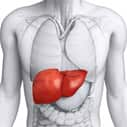
What's Hot
What's Hot
News flashes are posted here frequently to keep you up-to-date with the latest advances in health and longevity. We have an unparalleled track record of breaking stories about life extension advances.
Nicotinamide riboside shows promise as liver cancer preventive
 November 21 2014. An article published online on November 20, 2014 in the journal Cancer Cell reveals a protective effect for nicotinamide riboside, a vitamin B3 derivative that increases cellular levels of nicotinamide adenine dinucleotide (NAD+), against the risk of developing liver cancer in an animal model. NAD+, found in all living organisms, is necessary for the utilization of calories in cell metabolism.
November 21 2014. An article published online on November 20, 2014 in the journal Cancer Cell reveals a protective effect for nicotinamide riboside, a vitamin B3 derivative that increases cellular levels of nicotinamide adenine dinucleotide (NAD+), against the risk of developing liver cancer in an animal model. NAD+, found in all living organisms, is necessary for the utilization of calories in cell metabolism.
Nabil Djouder and his associates at the Spanish National Cancer Research Centre (CNIO) designed a mouse model of human hepatocellular cancer that reproduces the disease's stages from its initial lesions to metastasis. The mice were engineered to have liver cell-specific expression of an oncogene known as URI, which lowers cellular NAD+ and damages DNA, thereby initiating tumorigenesis.
Dr Djouder and colleagues found that providing the mice with diets rich in nicotinamide riboside protected the animals from developing the initial stage of liver cancer and that the compound also treated tumors in animals that had already developed the disease. The findings corroborate those involving vitamin B3 supplementation in deficient populations, which reduced the incidence of certain cancers.
"An increase in URI reduces cellular NAD+ and as a consequence produces genotoxic stress and DNA damage", reported Dr Nabil Djouder, who is the head of the Growth Factors, Nutrients and Cancer Group in the BBVA Foundation-CNIO Cancer Cell Biology Programme. "It is still not totally clear, however, why the deficit in NAD+ causes these lesions.
Lead author Krishna Tummala added that the team "observed the same results in mice with pancreatic adenocarcinoma with regards to DNA damage, so we could conclude that this treatment is effective on tumours caused by oncogene-induced DNA damage and thus, deficit in NAD+."
—D Dye
Subclinical vascular disease predicts ED
 November 19 2014. A presentation at the American Heart Association's Scientific Sessions 2014 on November 18 revealed a greater risk of future erectile dysfunction (ED) among men with early, asymptomatic vascular disease.
November 19 2014. A presentation at the American Heart Association's Scientific Sessions 2014 on November 18 revealed a greater risk of future erectile dysfunction (ED) among men with early, asymptomatic vascular disease.
"Erectile function can be a window into men's cardiovascular and overall health," remarked lead author David I. Feldman, BS, who is a research assistant at the Ciccarone Center for the Prevention of Heart Disease at Johns Hopkins in Baltimore. "Erectile dysfunction and cardiovascular disease commonly coexist."
The study included 1,862 participants in the Multi-Ethnic Study of Atherosclerosis (MESA) who did not have heart disease or ED upon enrollment. Subclinical vascular disease measures evaluated included coronary artery calcium, carotid intima-media thickness, aortic distensibility, distensibility coefficient, ankle-brachial index and flow-mediated dilation.
Over a nine year follow-up period, 45% of the subjects developed ED. Those who developed the condition had twice the risk of coronary artery calcium scores higher than 100 Agatston units in comparison with men who did not develop it. And among those with Agatston Scores of 100 or more, the adjusted risk of developing ED was 43% greater than men with normal scores. Carotid intima-media thickness, another indicator of atherosclerosis, was also greater among the ED group.
"We looked at which measurement of early vascular disease was the best predictor for erectile dysfunction," Dr Feldman explained. "We also looked at whether those men with multiple abnormalities, such as increased plaque in addition to arterial stiffness and dysfunction, were more likely to also suffer from erectile dysfunction."
"Current guidelines recommend exercise stress testing and an ankle-brachial index test for risk assessment in patients with erectile dysfunction," Feldman observed. "Our results suggest a more powerful indicator is direct measurement of coronary plaque through the use of a coronary artery calcium test."
—D Dye
Telomere finding explains cell aging effects
 November 17 2014. Findings from Drs. Jerry W. Shay and Woodring E. Wright and their colleagues at the University of Texas Southwestern Medical Center, reported in the journal Genes and Development, help explain how telomere shortening causes some of the effects of aging.
November 17 2014. Findings from Drs. Jerry W. Shay and Woodring E. Wright and their colleagues at the University of Texas Southwestern Medical Center, reported in the journal Genes and Development, help explain how telomere shortening causes some of the effects of aging.
Telomeres cap and protect the ends of chromosomes, and gradually shorten with each cell division. Dr Shay's team discovered that when telomeres are long, they form loops with the chromosomes they are attached to, which bring the telomeres close to genes that were once considered to be too distant to be regulated by telomere length. This proximity enables the telomere to switch off genes that are involved with aging and disease. When telomeres shorten, yet before they decrease to a length that damages DNA, no loop is formed, rendering the telomere unable to silence or activate the genes.
"Our results suggest a potential novel mechanism for how the length of telomeres may silence genes early in life and then contribute to their activation later in life when telomeres are progressively shortened," commented Dr Shay, who is Vice Chairman of Cell Biology at the University of Texas Southwestern. "This is a new way of gene regulation that is controlled by telomere length."
"We have developed the concept that telomere shortening could be used as a timing mechanism to respond to physiological changes in very long-lived organisms, such as humans, to optimize fitness in an age-appropriate fashion," Dr Wright added.
So far, three genes whose expression patterns are altered by telomere length have been identified, however, Drs Shay and Wright anticipate the discovery of many more.
—D Dye
Selenium reduces chemo side effects in pediatric cancer patients
 November 14 2014. The results of a double-blinded, crossover trial reported in the Journal of Medicinal Food revealed a benefit for supplementing with the mineral selenium in children and adolescents undergoing chemotherapy.
November 14 2014. The results of a double-blinded, crossover trial reported in the Journal of Medicinal Food revealed a benefit for supplementing with the mineral selenium in children and adolescents undergoing chemotherapy.
Researchers in Sao Paolo, Brazil randomized 39 patients with leukemia, lymphoma or solid tumors to receive a placebo or the age-appropriate Dietary Reference Intake level of selenium plus 80%, which resulted in doses ranging from 27 to 100 micrograms of selenium daily. Both groups underwent a washout phase during which no treatment was received at the end of the 30 day treatment period, followed by another 30 days in which the treatments were switched. Questionnaires administered prior to and after each period evaluated the participants' fatigue, nausea, physical function and appetite, and blood samples collected every 30 days were analyzed for kidney and liver function. In addition, eight patients from each group were followed for one year during which they received the age-appropriate dose of selenium.
Fatigue and nausea were significantly reduced in those with solid tumors who supplemented during the follow-up phase. Participants with leukemia and lymphoma experienced an improvement in physical function that was evident after the first 30 days of supplementation as well as at the end of one year among those in the follow-up group. Kidney and liver function were also improved in the supplemented subjects in comparison with those who received a placebo.
In consideration of the association that has been noted between free radicals and the stimulation of nausea during chemotherapy, the authors observe that, given selenium's antioxidant property, those who supplement with the mineral could have better control over free radical production and activity, thereby reducing the vomiting reflex. They recommend further research to investigate the effect of selenium on tumor evolution in the absence of chemotherapeutic drugs.
—D Dye
CoQ10 supplementation reduces statin-related muscle pain in randomized trial
 November 12 2014. A double-blinded trial reported in the most recent issue of Medical Science Monitor found a reduction in mild to moderate statin drug-induced muscle symptoms in men and women who supplemented with coenzyme Q10 (CoQ10). Myalgia is the most common adverse effect associated with the use of statins, which renders those who are intolerant of the symptoms unable to avail themselves of the drugs' potential benefits.
November 12 2014. A double-blinded trial reported in the most recent issue of Medical Science Monitor found a reduction in mild to moderate statin drug-induced muscle symptoms in men and women who supplemented with coenzyme Q10 (CoQ10). Myalgia is the most common adverse effect associated with the use of statins, which renders those who are intolerant of the symptoms unable to avail themselves of the drugs' potential benefits.
Researchers at the university of Ljubljana Medical Center in Slovenia randomized 50 middle-aged statin users who reported mild to moderate muscle pain for at least six months to receive 50 milligrams CoQ10 or a placebo twice per day for 30 days. Questionaires concerning pain severity and intereference with daily activities were administered before and after treatment, and blood samples were analyzed for lipid, liver enzyme and muscle enzyme levels.
By the end of the study, muscle pain intensity was decreased by 33% and pain interference was reduced by 40% among those who received CoQ10 while remaining unchanged in the placebo group. Seventy-five percent of the CoQ10 group were found to have experienced a decrease in statin-related muscle symptoms, with no change in lipids, liver enzymes or muscle enzymes.
"The present study revealed that by simple coenzyme Q10 supplementation of the regular statin treatment, associated muscle pain in the mild-to-moderate symptoms group could be significantly reduced," Ajda Skarlovnik and colleagues conclude. "Consequently, it may lead to lower interference with daily activities and higher compliance with statin treatment. These observations mean a better quality of life, besides adequate cardiovascular protection, which is the primary goal of statin therapy. The results of the present study are very promising, but require further testing in larger clinical trials, mainly to allow them to be generalized."
—D Dye
MCTs could fight brain aging
 November 7 2014. The November 2014 issue of Cell Metabolism published the findings of researchers at the National Institute on Aging and the University of Copenhagen of a benefit for fats known as medium-chain triglycerides (MCTs) in the premature aging disorder known as Cockayne Syndrome. The finding suggests that the fats could be used to help retard the progression of other diseases associated with brain aging, including Alzheimer’s or Parkinson’s disease.
November 7 2014. The November 2014 issue of Cell Metabolism published the findings of researchers at the National Institute on Aging and the University of Copenhagen of a benefit for fats known as medium-chain triglycerides (MCTs) in the premature aging disorder known as Cockayne Syndrome. The finding suggests that the fats could be used to help retard the progression of other diseases associated with brain aging, including Alzheimer’s or Parkinson’s disease.
The researchers found that a calorie restricted diet containing a high amount of coconut oil (a source of MCTs), was able to alleviate metabolic, behavioral and other genetic changes associated with Cockayne syndrome in mice bred to have a DNA repair system defect similar to that of humans with the disorder. "In cells from children with Cockayne syndrome, we have previously demonstrated that aging is a result of the cell repair mechanism being constantly active,” explained lead author Morten Scheibye-Knudsen. “It eats into the resources and causes the cell to age very quickly. We therefore hope that a diet with a high content of coconut oil or similar fats will have a beneficial effect, because the brain cells are given extra fuel and thus the strength to repair the damage."
"The study is good news for children with Cockayne syndrome, because we do not currently have an effective treatment,” commented research team leader Vilhelm A. Bohr, of the NIA’s Laboratory of Molecular Gerontology and the Danish Center for Healthy Aging at the University of Copenhagen. “Our study suggests that a high-fat diet can postpone aging processes. A diet high in fat also seems to postpone the aging of the brain. The findings therefore potentially imply that patients with Alzheimer's and Parkinson's disease in the long term may benefit from the new knowledge.”
—D Dye
Caution recommended for ADT in heart patients
 November 5 2014. Findings from a study described on October 29, 2014 in BJU International suggest caution for men with a history of heart attack or congestive heart failure who are considering treatment with androgen deprivation therapy (ADT) for prostate cancer. Androgen deprivation therapy works by lowering the hormone testosterone and, while beneficial to a significant number of patients, can cause severe side effects.
November 5 2014. Findings from a study described on October 29, 2014 in BJU International suggest caution for men with a history of heart attack or congestive heart failure who are considering treatment with androgen deprivation therapy (ADT) for prostate cancer. Androgen deprivation therapy works by lowering the hormone testosterone and, while beneficial to a significant number of patients, can cause severe side effects.
Paul L. Nguyen, MD, and colleagues analyzed data from 5,077 men whose prostate cancer was treated with brachytherapy with or without ADT between 1997 and 2006. Among men who had no cardiac risk factors, there was no significant difference in the risk of dying over follow-up from cardiac causes between those treated with ADT and those who were not. However, ADT-treated men who had congestive heart failure or a history of myocardial infarction experienced more than triple the risk of cardiac-specific mortality compared to those with a similar history who were not treated with the drugs.
"While androgen deprivation therapy can be a lifesaving drug for men with prostate cancer and significantly increase the cure rates when used with radiation for aggressive disease, this study also raises the possibility that a small subgroup of men who have significant heart disease could experience increased cardiac death on ADT,” Dr Nguyen stated. “I would still say that for men with significant heart problems, we should try to avoid ADT when it is not necessary—such as for men with low-risk disease or men receiving ADT only to shrink the prostate prior to radiation. However, for men with high-risk disease, in whom the prostate-cancer benefits of ADT likely outweigh any potential cardiac harms, ADT should be given even if they have heart problems, but the patient should be followed closely by a cardiologist to ensure that he is being carefully watched and optimized from a cardiac perspective.”
—D Dye
Multinutrient, calcium supplementation associated with lower colorectal cancer risk
 November 3 2014. The results of a meta-analysis published online on October 21, 2014 in the International Journal of Cancer add to evidence in favor of a protective effect for dietary supplementation against the risk of colorectal cancer. “To the best of our knowledge, no systematic review and meta-analyses of prospective cohort studies have been conducted that focus on colorectal cancer risk and use of dietary supplements specifically,” write authors R. C. Heine-Bröring and colleagues in their introduction to the article.
November 3 2014. The results of a meta-analysis published online on October 21, 2014 in the International Journal of Cancer add to evidence in favor of a protective effect for dietary supplementation against the risk of colorectal cancer. “To the best of our knowledge, no systematic review and meta-analyses of prospective cohort studies have been conducted that focus on colorectal cancer risk and use of dietary supplements specifically,” write authors R. C. Heine-Bröring and colleagues in their introduction to the article.
Dr Heine-Bröring and associates selected 24 studies examining the association between supplement use and colorectal cancer for their analysis. Compared to no use, the use of multivitamin supplements was associated with a 7% lower risk of colorectal cancer. For users of calcium supplements, a 14% lower risk of the disease was uncovered. Inconsistent evidence was found for the remainder of dietary supplements analyzed. Contrary to recent concerns, no effect was found for folic acid.
In their discussion, the authors remark that multivitamins contain single nutrients with chemopreventive functions, yet it is possible that several components in these formulas reinforce one another. In regard to calcium, they observe that “Calcium as a micronutrient can act on many cellular functions, including direct growth-restraining and differentiation- and apoptosis-inducing action on normal and tumor colorectal cells. Based on the generally consistent data from trials and prospective cohort studies and the plausible mechanisms of calcium, we believe that use of calcium supplements might be beneficial in colorectal cancer prevention.”
They recommend further substantiation of the findings by randomized controlled trials involving large populations and long follow-up periods. “Since dietary supplement use is ubiquitous in the Western world where colorectal cancer is prevalent, studies on the role of dietary supplements are of great public health importance and should be a priority,” they conclude.
—D Dye

